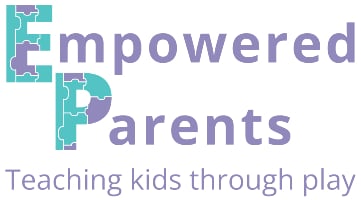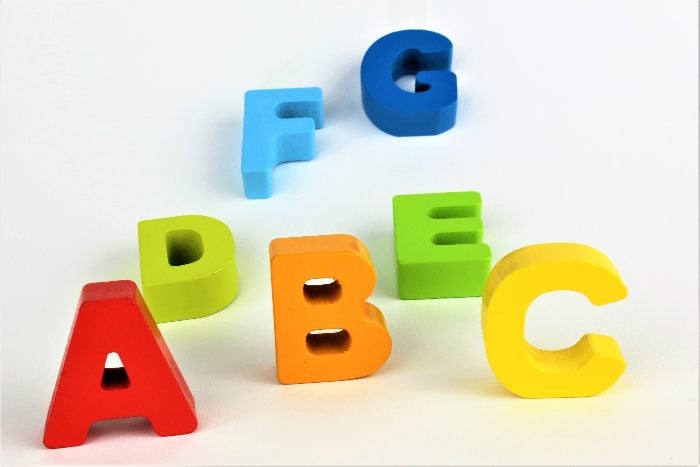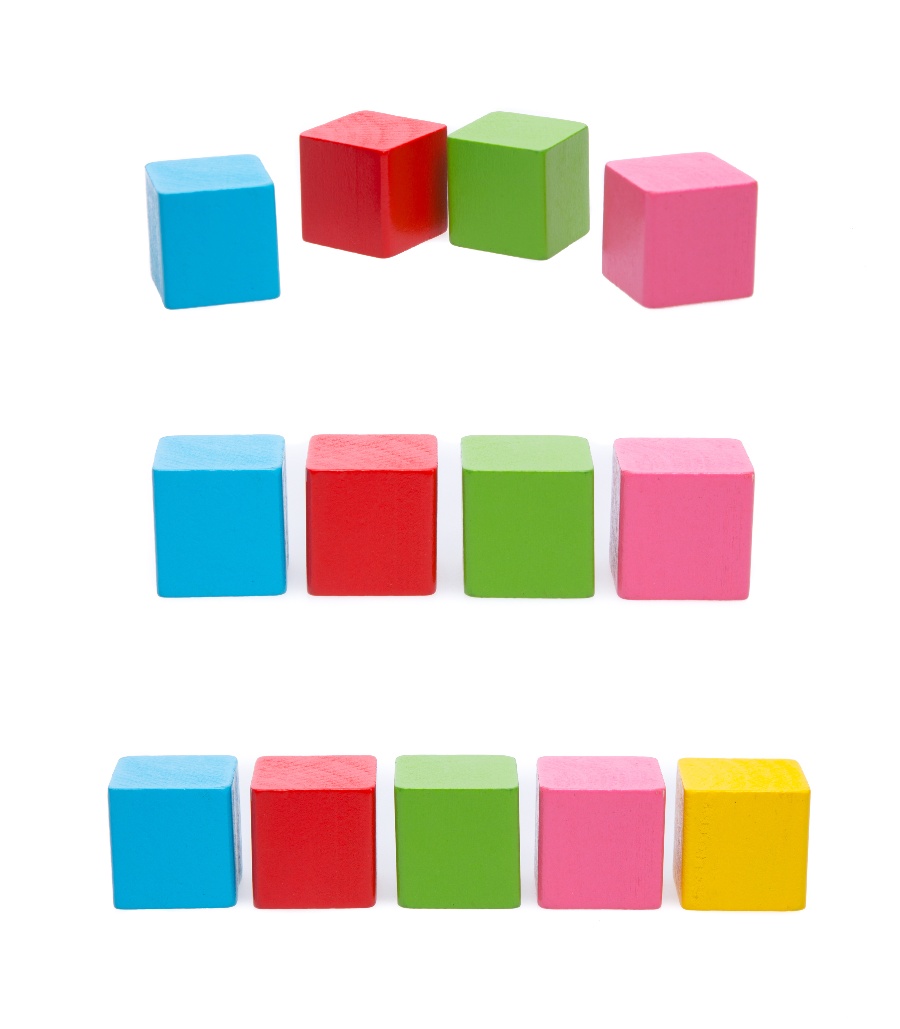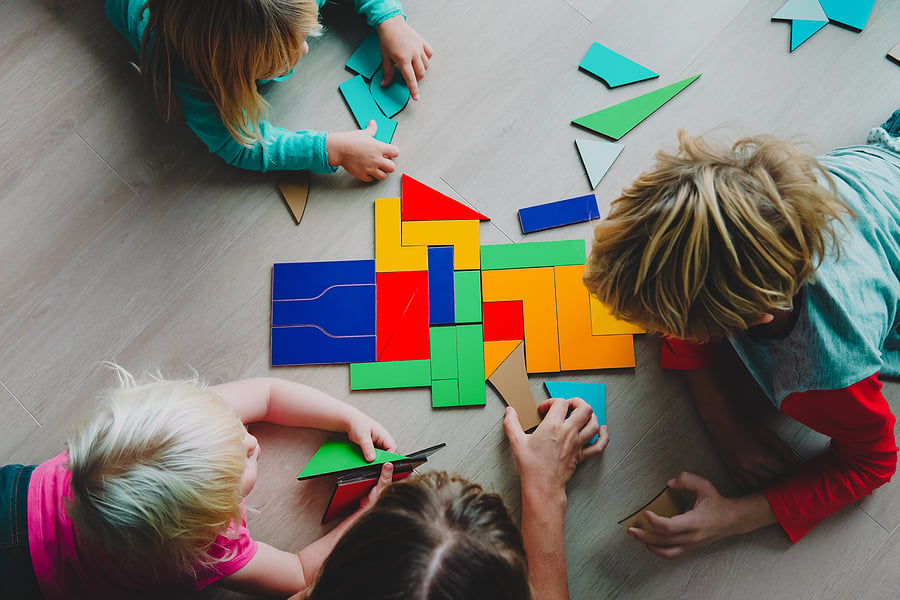From an early age, children are drawn to the rhythmic sounds of poems, songs, chants, and rhyming stories. Rhyming is more than just fun—it’s a key pre-reading skill for preschoolers that supports their development as they prepare for kindergarten and first grade. Detecting and manipulating rhyming sounds are aspects of phonemic awareness, which is crucial …
Early Literacy & Numeracy
Early literacy and numeracy education lays the groundwork for children’s future success in reading, writing, mathematics and problem-solving.
This category focuses on developing essential skills through engaging and hands-on activities
Here are some early literacy posts to get started with:
- Early Literacy Skills: What early literacy is and the 17 early literacy skills for preschoolers.
- Language Activities: These are 15 of the best play-based ways to develop children’s language skills.
- Pre-Reading Skills: Before kids can learn to read, they must develop 5 pre-reading skills. Here are 10 simple ways to build them.
- Letter Recognition Activities: 14 fun ways to teach kids to identify letters.
- Reading to Your Children: Here are 19 reasons why you absolutely must read to your children every day!
- 17 Ways to Improve Listening Skills: Listening skills affect speech and language, reading, following instructions, socializing and more. Here are more activities:
-
- Listen-and-Draw Activities: Build concentration and the ability to follow directions with these 10 prompts.
-
- Multi-Step Directions: Start with these 2-step directions and make your way up to 4 or 5-part instructions.
-
- Play Auditory memory games and visual memory games with your preschoolers often!
- Build higher-order thinking skills during story time and with other activities such as:
- Pre-Writing Activities: Why doing pre-writing activities before learning to write is a must, and simple ideas.
-
- Name Writing Activities: Here are 10 ways to teach kids to write their name.
Here are some early numeracy posts to get started with:
- Early Numeracy Skills: An overview of the 6 early maths skills.
- The Best Way to Teach Maths to Preschoolers: Follow the concrete-pictorial-abstract method and try these 15 simple activities.
- One-to-one Correspondence: Why it’s more important than rote counting
- Number Recognition Games: 13 fun ways to learn to identify numbers.
- Shapes Recognition Activities: Here are 10 simple shape activities to try at home or school.
- Teaching Money: 10 things you should be teaching your preschoolers about money.
- Learning About Time: Simplifying the abstract concept of time for young kids.
- Pattern Activities: Maths is filled with patterns. Teach children to build, identify and continue patterns.
- How to Teach Measurement: Here are 10 ways to teach preschoolers about measurement with non-standard units of measurement.
- Graphing Activities: Teach children about graphing in practical ways they can understand.
Here are some fun, simple pre-reading skills activities for preschoolers that are fun for home or school. What is Pre-Reading? Before any child can learn to read well and become a competent speller, five pre-reading skills must be mastered in order to lay a proper foundation. Pre-reading skills are important as they set children up to …
One of the most useful activities you can do every day while reading to your children at story time or bedtime, is to question them meaningfully in order to develop thinking skills. Through the use of some very basic types of open-ended questions, you will have your children thinking, analyzing, predicting, comparing, deciding, giving opinions …
The best way for young children to build early maths skills is through hands-on activities and engaging games. Develop your kids’ concept of numbers and basic counting skills with these simple counting games. P.S. This post includes a handy printable of these games. 1. Number Hunt Practice number recognition by hiding number cards (with numbers …
Introducing young children to graphing can be fun and engaging with hands-on activities. Before drawing data, they can organize objects like shoes, crayons, or toys to visualize and compare. This helps preschoolers practise essential maths skills such as sorting, counting, and estimating while preparing them for more complex graphing concepts in the future. Here are …
Symmetry can be quite an abstract concept for young children to understand. To grasp it, they need to see the symmetry around them in the world, and explore symmetry through art activities, and play. At this stage, you’ll want to introduce the idea to children, show them that it exists, and let them have fun …
Patterns are a key early maths skill. Children first notice them in colours, shapes, and their environment. As they grow, they identify patterns in counting, addition, and multiplication. Patterns also appear in language, from word shapes to rhyming sounds, and even in children’s drawings around age four. P.S. This post includes a handy printable of …
Asking kids open-ended questions provides helpful insight into their critical thinking skills. Here is a look at what they are, the benefits of asking open-ended questions in early childhood and a list of example questions to use at home and school with your kids. There’s also a printable with these questions at the end of …
Teaching preschoolers the concept of time can be challenging. Because time is an abstract concept, children need multiple opportunities to experience and understand it. While you may want to dive into teaching kids how to actually tell the time, it is important that they first develop a concept of the passing of time. They need …
Teaching your kids about shapes and need some ideas for learning about circles? The best way to teach young kids the early maths skill of shape recognition is to let them see, feel and experience shapes in a hands-on, concrete way. There is no better way than by learning through play. Try these fun activities …
Would You Rather is a wonderful game for engaging young children and teaching them to think and reason. Play it at home, in class, while driving or prepping dinner. This is a fun collection of Would You Rather questions for preschoolers, kindergarteners and even older kids. There’s also a printable of these questions at the …
Teaching children about shapes and their properties should be a fun, hands-on experience. Shape recognition is about more than just being able to spot the basic shapes. It’s important for building early maths skills and visual perception (for reading). Letters are made up of shapes and children need to learn to distinguish, recognize and remember …












